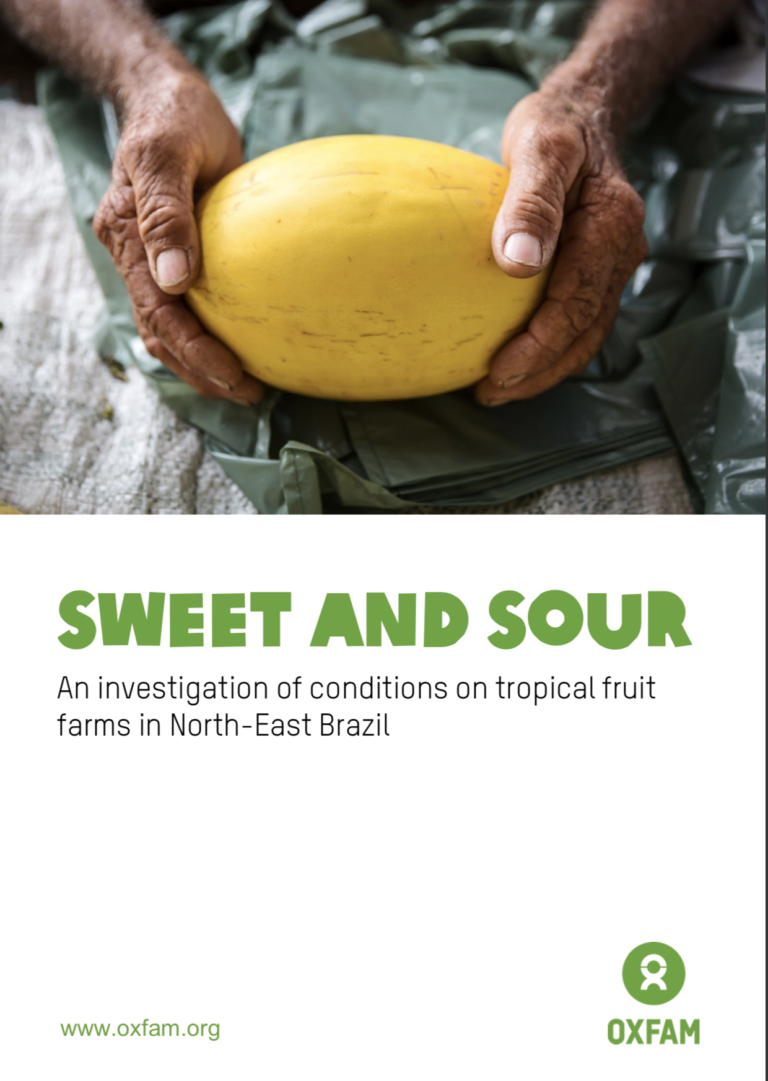A government policy of periodically raising the minimum wage, proactive enforcement of the minimum wage, and clear labour laws have raised incomes and reduced inequality between men and women workers in Brazil over the past 20 years. However, these gains are now at risk from recent labour reforms.
This briefing paper, part of Oxfam’s campaign to end human suffering in food supply chains, looks at in-work poverty and labour rights abuses faced by seasonal workers in Brazil’s tropical fruit sector, which supplies many major international supermarket chains.
It argues for transparency from supermarkets about their fruit supply chains and for the Brazilian government to continue to raise minimum wages and strengthen labour protections in order to address poverty and reduce inequality.
The research presented in this paper identifies good practice in resolving and preventing labour rights abuses through collective bargaining agreements, which could be a model to improve wages and working conditions in supply chains globally.

